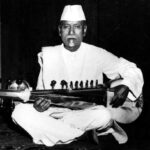R.D. Burman: 7 Timeless Facts About Bollywood’s Musical Genius
Introduction
R.D. Burman: Few musicians have redefined an entire industry, but R.D. Burman, fondly known as Pancham Da, did just that. He was the pioneer of modern Bollywood music, blending Indian classical, rock, jazz, and funk to create melodies that still resonate today.
With over 300 films, countless evergreen hits, and an undying fan base, R.D. Burman was not just a composer—he was a revolution in Indian music. This biography explores his life, contributions, daily impact, and enduring legacy.
Early Life and Musical Roots
Born Into a Legacy
- Rahul Dev Burman was born on June 27, 1939, in Kolkata into a family deeply rooted in music.
- His father, S.D. Burman, was already a renowned composer, and young Rahul was exposed to classical and folk tunes from childhood.
- It is said that as a baby, his first cry sounded like the note Pa (Pancham in Indian music), which earned him the nickname Pancham Da.
Early Musical Training
- Trained under Ali Akbar Khan and Samta Prasad, he mastered instruments like tabla, sarod, and harmonium.
- Assisted his father in several projects before making his independent debut.
Rise to Fame: A Musical Game-Changer
1. The Big Break – Chhote Nawab (1961)
- R.D. Burman debuted as a solo composer with Chhote Nawab, introducing fresh jazz influences to Bollywood.
- However, his real breakthrough came in 1966 with the film Teesri Manzil, starring Shammi Kapoor.
- The film’s rock-n-roll beats and lively rhythms made him an overnight sensation.
2. Iconic 70s & 80s Era – Bollywood’s Music Maestro
- Composed legendary soundtracks for films like:
- Hare Rama Hare Krishna (1971) – Popularized the hippie culture in India with Dum Maro Dum.
- Amar Prem (1972) – Songs like Chingari Koi Bhadke redefined Bollywood’s emotional music.
- Yaadon Ki Baaraat (1973) – Introduced Meri Soni Meri Tamanna, one of Bollywood’s first disco tracks.
- Sholay (1975) – Though known for its action, the film’s songs (Mehbooba Mehbooba) became cult hits.
- Known for his experimental sounds, he incorporated:
- Western beats (Piya Tu Ab To Aaja)
- Folk elements (Kanchi Re Kanchi Re)
- Romantic ballads (Tere Bina Zindagi Se Koi)
Impact on Daily Life & Society
1. Revolutionizing Bollywood Music
- Before R.D. Burman, Bollywood relied heavily on classical and semi-classical tunes.
- He introduced electronic music, Western rock, funk, and jazz, forever changing the Bollywood soundscape.
2. Making Songs That Never Get Old
- Even today, his songs are remixed, recreated, and played at concerts, weddings, and parties.
- From romantic anthems to party bangers, his music remains relevant across generations.
3. Influence on Modern Musicians
- Legends like A.R. Rahman, Vishal-Shekhar, Pritam, and Amit Trivedi cite R.D. Burman as their biggest inspiration.
- Many of his compositions have been sampled by international artists.
4. Mood Lifter & Emotional Companion
- His music is therapeutic, whether it’s heartbreak (Tere Bina Zindagi Se Koi) or celebration (Bachna Ae Haseeno).
- His soundtracks uplift moods, ignite nostalgia, and bring people together.
Challenges & Comeback
- Despite being Bollywood’s top composer, the 1980s saw a decline in his career, as newer trends emerged.
- However, he made a grand comeback with 1942: A Love Story (1994), proving his genius was timeless.
- Sadly, he passed away on January 4, 1994, just before the film’s release.
Legacy & Significance
- Honored with multiple Filmfare Awards, posthumous recognitions, and lifetime achievement honors.
- Even decades after his passing, he remains a household name.
- His songs continue to be remixed, covered, and celebrated worldwide.
FAQs About R.D. Burman
1. Why is R.D. Burman called Pancham Da?
- His childhood cries resembled the note Pa (Pancham), earning him the nickname.
2. What makes R.D. Burman’s music special?
- He blended Indian classical, Western rock, funk, jazz, and folk into an innovative Bollywood sound.
3. What was his last film?
- 1942: A Love Story was his final masterpiece, released posthumously.
4. How many songs did R.D. Burman compose?
- He composed music for over 300 films, creating some of Bollywood’s most iconic songs.
5. Who were his closest collaborators?
- He worked closely with legends like Kishore Kumar, Lata Mangeshkar, Asha Bhosle, and Gulzar.
Final Thoughts
R.D. Burman wasn’t just a composer—he was a revolution in Bollywood music. His melodies continue to resonate across generations, making us dance, cry, love, and dream.
🎵 As long as Bollywood exists, the music of Pancham Da will never fade away! 🎶











I will right away grasp your rss feed as I can not to find your email subscription link or e-newsletter service. Do you’ve any? Kindly let me know in order that I may subscribe. Thanks.